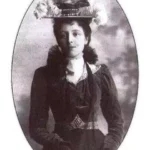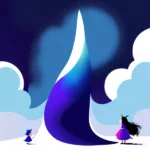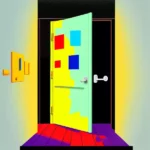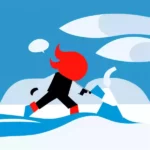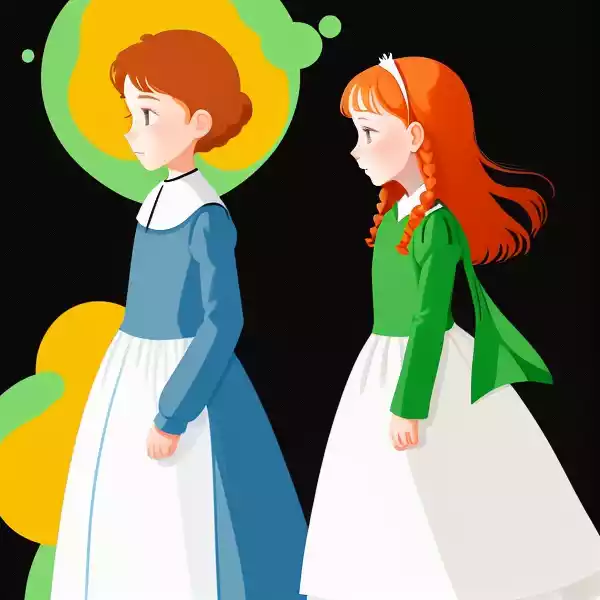 | |
How We Went to the Wedding | |
| Author | Lucy Maud Montgomery |
|---|---|
| Published |
1903
|
| Language | English |
| Nationality | Canadian |
| Genre | Anne of Green Gables, Children's Literature |
1903 Short Story
How We Went to the Wedding
How We Went to the Wedding is an English Anne of Green Gables, Children's Literature short story by Canadian writer Lucy Maud Montgomery. It was first published in 1903.
How We Went to the Wedding
by Lucy Maud Montgomery
“If it were to clear up I wouldn’t know how to behave, it would seem so unnatural,” said Kate. “Do you, by any chance, remember what the sun looks like, Phil?”
“Does the sun ever shine in Saskatchewan anyhow?” I asked with assumed sarcasm, just to make Kate’s big, bonny black eyes flash.
They did flash; but Kate laughed immediately after, as she sat down on a chair in front of me and cradled her long, thin, spirited dark face in her palms.
“We have more sunny weather in Saskatchewan than in all the rest of Canada put together, in an average year,” she said, clicking her strong, white teeth and snapping her eyes at me. “But I can’t blame you for feeling sceptical about it, Phil. If I went to a new country and it rained every dayall dayall nightafter I got there for three whole weeks I’d think things not lawful to be uttered about the climate too. So, little cousin, I forgive you. Remember that ‘into each life some rain must fall, some days must be dark and dreary.’ Oh, if you’d only come to visit me last fall. We had such a bee-yew-tiful September last year. We were drowned in sunshine. This fall we’re drowned in water. Old settlers tell of a similar visitation in ’72, though they claim even that wasn’t quite as bad as this.”
I was sitting rather disconsolately by an upper window of Uncle Kenneth Morrison’s log house at Arrow Creek. Below was what in dry weatherso, at least, I was toldwas merely a pretty, grassy little valley, but which was now a considerable creek of muddy yellow water, rising daily. Beyond was a cheerless prospect of sodden prairie and dripping “bluff.”
“It would be a golden, mellow land, with purple hazes over the bluffs, in a normal fall,” assured Kate. “Even now if the sun were just to shine out for a day and a good ‘chinook’ blow you’d see a surprising change. I feel like chanting continually that old rhyme I learned in the first primer,
'Rain, rain, go away, Come again some other day: some other day next summer Phil and Katie want to play.'
Philippa, dear girl, don’t look so dismal. It’s bound to clear up sometime.”
“I wish the ‘sometime’ would come soon, then,” I said, rather grumpily.
“You know it hasn’t really rained for three days,” protested Kate. “It’s been damp and horrid and threatening, but it hasn’t rained. I defy you to say that it has actually rained.”
“When it’s so wet underfoot that you can’t stir out without rubber boots it might as well be wet overhead too,” I said, still grumpily.
“I believe you’re homesick, girl,” said Kate anxiously.
“No, I’m not,” I answered, laughing, and feeling ashamed of my ungraciousness. “Nobody could be homesick with such a jolly good fellow as you around, Kate. It’s only that this weather is getting on my nerves a bit. I’m fit for treasons, stratagems, and spoils. If your chinook doesn’t come soon, Kitty, I’ll do something quite desperate.”
“I feel that way myself,” admitted Kate. “Real reckless, Phil. Anyhow, let’s put on our despised rubber boots and sally out for a wade.”
“Here’s Jim Nash coming on horseback down the trail,” I said. “Let’s wait and see if he’s got the mail.”
We hurried down, Kate humming, “Somewhere the sun is shining,” solely, I believe, because she knew it aggravated me. At any other time I should probably have thrown a pillow at her, but just now I was too eager to see if Jim Nash had brought any mail.
I had come from Ontario, the first of September, to visit Uncle Kenneth Morrison’s family. I had been looking forward to the trip for several years. My cousin Kate and I had always corresponded since they had “gone west” ten years before; and Kate, who revelled in the western life, had sung the praises of her adopted land rapturously and constantly. It was quite a joke on her that, when I did finally come to visit her, I should have struck the wettest autumn ever recorded in the history of the west. A wet September in Saskatchewan is no joke, however. The country was almost “flooded out.” The trails soon became nearly impassable. All our plans for drives and picnics and inter-neighbour visitingat that time a neighbour meant a man who lived at least six miles awayhad to be given up. Yet I was not lonesome, and I enjoyed my visit in spite of everything. Kate was a host in herself. She was twenty-eight years oldeight years my seniorbut the difference in our ages had never been any barrier to our friendship. She was a jolly, companionable, philosophical soul, with a jest for every situation, and a merry solution for every perplexity. The only fault I had to find with her was her tendency to make parodies. Kate’s parodies were perfectly awful and always got on my nerves.
She was dreadfully ashamed of the way the Saskatchewan weather was behaving after all her boasting. She was thin at the best of times, but now she grew positively scraggy with the worry of it. I am afraid I took an unholy delight in teasing her, and abused the western weather even more than was necessary.
Jim Nashthe lank youth who was hired to look after the place during Uncle Kenneth’s absence on a prolonged threshing expeditionhad brought some mail. Kate’s share was a letter, postmarked Bothwell, a rising little town about one hundred and twenty miles from Arrow Creek. Kate had several friends there, and one of our plans had been to visit Bothwell and spend a week with them. We had meant to drive, of course, since there was no other way of getting there, and equally of course the plan had been abandoned because of the wet weather.
“Mother,” exclaimed Kate, “Mary Taylor is going to be married in a fortnight’s time! She wants Phil and me to go up to Bothwell for the wedding.”
“What a pity you can’t go,” remarked Aunt Jennie placidly. Aunt Jennie was always a placid little soul, with a most enviable knack of taking everything easy. Nothing ever worried her greatly, and when she had decided that a thing was inevitable it did not worry her at all.
“But I am going,” cried Kate. “I will goI must go. I positively cannot let Mary Taylormy own beloved Mollygo and perpetrate matrimony without my being on hand to see it. Yes, I’m goingand if Phil has a spark of the old Blair pioneer spirit in her, she’ll go too.”
“Of course I’ll go if you go,” I said.
Aunt Jennie did not think we were in earnest, so she merely laughed at first, and said, “How do you propose to go? Flyor swim?”
“We’ll drive, as usual,” said Kate calmly. “I’d feel more at home in that way of locomotion. We’ll borrow Jim Nash’s father’s democrat, and take the ponies. We’ll put on old clothes, raincoats, rubber caps and boots, and we’ll start tomorrow. In an ordinary time we could easily do it in six days or less, but this fall we’ll probably need ten or twelve.”
“You don’t really mean to go, Kate!” said Aunt Jennie, beginning to perceive that Kate did mean it.
“I do,” said Kate, in a convincing tone.
Aunt Jennie felt a little worriedas much as she could feel worried over anythingand she tried her best to dissuade Kate, although she plainly did not have much hope of doing so, having had enough experience with her determined daughter to realize that when Kate said she was going to do a thing she did it. It was rather funny to listen to the ensuing dialogue.
“Kate, you can’t do it. It’s a crazy idea! The road is one hundred and twenty miles long.”
“I’ve driven it twice, Mother.”
“Yes, but not in such a wet year. The trail is impassable in places.”
“Oh, there are always plenty of dry spots to be found if you only look hard for them.”
“But you don’t know where to look for them, and goodness knows what you’ll get into while you are looking.”
“We’ll call at the M.P. barracks and get an Indian to guide us. Indians always know the dry spots.”
“The stage driver has decided not to make another trip till the October frosts set in.”
“But he always has such a heavy load. It will be quite different with us, you must remember. We’ll travel lightjust our provisions and a valise containing our wedding garments.”
“What will you do if you get mired twenty miles from a human being?”
“But we won’t. I’m a good driver and I haven’t nervesbut I have nerve. Besides, you forget that we’ll have an Indian guide with us.”
“There was a company of Hudson Bay freighters ambushed and killed along that very trail by Blackfoot Indians in 1839,” said Aunt Jennie dolefully.
“Fifty years ago! Their ghosts must have ceased to haunt it by this time,” said Kate flippantly.
“Well, you’ll get wet through and catch your deaths of cold,” protested Aunt Jennie.
“No fear of it. We’ll be cased in rubber. And we’ll borrow a good tight tent from the M.P.s. Besides, I’m sure it’s not going to rain much more. I know the signs.”
“At least wait for a day or two until you’re sure that it has cleared up,” implored Aunt Jennie.
“Which being interpreted means, ‘Wait for a day or two, because then your father may be home and he’ll squelch your mad expedition,'” said Kate, with a sly glance at me. “No, no, my mother, your wiles are in vain. We’ll hit the trail tomorrow at sunrise. So just be good, darling, and help us pack up some provisions. I’ll send Jim for his father’s democrat.”
Aunt Jennie resigned herself to the inevitable and betook herself to the pantry with the air of a woman who washes her hands of the consequences. I flew upstairs to pack some finery. I was wild with delight over the proposed outing. I did not realize what it actually meant, and I had perfect confidence in Kate, who was an expert driver, an experienced camper out, and an excellent manager. If I could have seen what was ahead of us I would certainly not have been quite so jubilant and reckless, but I would have gone all the same. I would not miss the laughter-provoking memories of that trip out of my life for anything. I have always been glad I went.
We left at sunrise the next morning; there was a sunrise that morning, for a wonder. The sun came up in a pinky-saffron sky and promised us a fine day. Aunt Jennie bade us goodbye and, estimable woman that she was, did not trouble us with advice or forebodings.
Mr. Nash had sent over his “democrat,” a light wagon with springs; and Kate’s “shaganappies,” Tom and Jerrynative ponies, the toughest horse flesh to be found in the worldwere hitched to it. Kate and I were properly accoutred for our trip and lookedbut I try to forget how we looked! The memory is not flattering.
We drove off in the gayest of spirits. Our difficulties began at the start, for we had to drive a mile before we could find a place to ford the creek. Beyond that, however, we had a passable trail for three miles to the little outpost of the Mounted Police, where five or six men were stationed on detachment duty.
“Sergeant Baker is a friend of mine,” said Kate. “He’ll be only too glad to lend me all we require.”
The sergeant was a friend of Kate’s, but he looked at her as if he thought she was crazy when she told him where we were going.
“You’d better take a canoe instead of a team,” he said sarcastically. “I’ve a good notion to arrest you both as horse thieves and prevent you from going on such a mad expedition.”
“You know nothing short of arrest would stop me,” said Kate, nodding at him with laughing eyes, “and you really won’t go to such an extreme, I know. So please be nice, even if it comes hard, and lend us some things. I’ve come a-borrying.”
“I won’t lend you a thing,” declared the sergeant. “I won’t aid and abet you in any such freak as this. Go home now, like a good girl.”
“I’m not going home,” said Kate. “I’m not a ‘good girl’I’m a wicked old maid, and I’m going to Bothwell. If you won’t lend us a tent we’ll go withoutand sleep in the openand our deaths will lie forever at your door. I’ll come back and haunt you, if you don’t lend me a tent. I’ll camp on your very threshold and you won’t be able to go out of your door without falling over my spook.”
“I’ve more fear of being accountable for your death if I do let you go,” said Sergeant Baker dubiously. “However, I see that nothing but physical force will prevent you. What do you want?”
“I want,” said Kate, “a cavalry tent, a sheet-iron camp stove, and a good Indian guideold Peter Crow for choice. He’s such a respectable-looking old fellow, and his wife often works for us.”
The sergeant gave us the tent and stove, and sent a man down to the Reserve for Peter Crow. Moreover, he vindicated his title of friend by making us take a dozen prairie chickens and a large hambesides any quantity of advice. We didn’t want the advice but we hugely welcomed the ham. Presently our guide appearedquite a spruce old Indian, as Indians go. I had never been able to shake off my childhood conviction that an Indian was a fearsome creature, hopelessly addicted to scalping knives and tomahawks, and I secretly felt quite horrified at the idea of two defenceless females starting out on a lonely prairie trail with an Indian for guide. Even old Peter Crow’s meek appearance did not quite reassure me; but I kept my qualms to myself, for I knew Kate would only laugh at me.
It was ten when we finally got away from the M.P. outpost. Sergeant Baker bade us goodbye in a tone which seemed to intimate that he never expected to see either of us again. What with his dismal predictions and my secret horror of Indians, I was beginning to feel anything but jubilant over our expedition. Kate, however, was as blithe and buoyant as usual. She knew no fear, being one of those enviable folk who can because they think they can. One hundred and twenty miles of half-flooded prairie trailcamping out at night in the solitude of the Great Lone LandrainmuskegsIndian guidesnothing had any terror for my dauntless cousin.
For the next three hours, however, we got on beautifully. The trail was fair, though somewhat greasy; the sun shone, though with a somewhat watery gleam, through the mists; and Peter Crow, coiled up on the folded tent behind the seat, slept soundly and snored mellifluously. That snore reassured me greatly. I had never thought of Indians as snoring. Surely one who did couldn’t be dreaded greatly.
We stopped at one o’clock and had a cold lunch, sitting in our wagon, while Peter Crow wakened up and watered the ponies. We did not get on so well in the afternoon. The trail descended into low-lying ground where travelling was very difficult. I had to admit old Peter Crow was quite invaluable. He knew, as Kate had foretold, “all the dry spots”that is to say, spots less wet than others. But, even so, we had to make so many detours that by sunset we were little more than six miles distant from our noon halting place.
“We’d better set camp now, before it gets any darker,” said Kate. “There’s a capital spot over there, by that bluff of dead poplar. The ground seems pretty dry too. Peter, cut us a set of tent poles and kindle a fire.”
“Want my dollar first,” said old Peter stolidly.
We had agreed to pay him a dollar a day for the trip, but none of the money was to be paid until we got to Bothwell. Kate told him this. But all the reply she got was a stolid, “Want dollar. No make fire without dollar.”
We were getting cold and it was getting dark, so finally Kate, under the law of necessity, paid him his dollar. Then he carried out our orders at his own sweet leisure. In course of time he got a fire lighted, and while we cooked supper he set up the tent and prepared our beds, by cutting piles of brush and covering them with rugs.
Kate and I had a hilarious time cooking that supper. It was my first experience of camping out and, as I had become pretty well convinced that Peter Crow was not the typical Indian of old romance, I enjoyed it all hugely. But we were both very tired, and as soon as we had finished eating we betook ourselves to our tent and found our brush beds much more comfortable than I had expected. Old Peter coiled up on his blanket outside by the fire, and the great silence of a windless prairie enwrapped us. In a few minutes we were sound asleep and never wakened until seven o’clock.
When we arose and lifted the flap of the tent we saw a peculiar sight. The little elevation on which we had pitched our camp seemed to be an island in a vast sea of white mist, dotted here and there with other islands. On every hand to the far horizon stretched that strange, phantasmal ocean, and a hazy sun looked over the shifting billows. I had never seen a western mist before and I thought it extremely beautiful; but Kate, to whom it was no novelty, was more cumbered with breakfast cares.
“I’m ravenous,” she said, as she bustled about among our stores. “Camping out always does give one such an appetite. Aren’t you hungry, Phil?”
“Comfortably so,” I admitted. “But where are our ponies? And where is Peter Crow?”
“Probably the ponies have strayed away looking for pea vines. They love and adore pea vines,” said Kate, stirring up the fire from under its blanket of grey ashes. “And Peter Crow has gone to look for them, good old fellow. When you do get a conscientious Indian there is no better guide in the world, but they are rare. Now, Philippa-girl, just pry out the sergeant’s ham and shave a few slices off it for our breakfast. Some savoury fried ham always goes well on the prairie.”
I went for the ham but could not find it. A thorough search among our effects revealed it not.
“Kate, I can’t find the ham,” I called out. “It must have fallen out somewhere on the trail.”
Kate ceased wrestling with the fire and came to help in the search for the missing delicacy.
“It couldn’t have fallen out,” she said incredulously. “That is impossible. The tent was fastened securely over everything. Nothing could have jolted out.”
“Well, then, where is the ham?” I said.
That question was unanswerable, as Kate discovered after another thorough search. The ham was gonethat much was certain.
“I believe Peter Crow has levanted with the ham,” I said decidedly.
“I don’t believe Peter Crow could be so dishonest,” said Kate rather shortly. “His wife has worked for us for years, and she’s as honest as the sunlight.”
“Honesty isn’t catching,” I remarked, but I said nothing more just then, for Kate’s black eyes were snapping.
“Anyway, we can’t have ham for breakfast,” she said, twitching out the frying pan rather viciously. “We’ll have to put up with canned chickenif the cans haven’t disappeared too.”
They hadn’t, and we soon produced a very tolerable breakfast. But neither of us had much appetite.
“Do you suppose Peter Crow has taken the horses as well as the ham?” I asked.
“No,” gloomily responded Kate, who had evidently been compelled by the logic of hard facts to believe in Peter’s guilt, “he would hardly dare to do that, because he couldn’t dispose of them without being found out. They’ve probably strayed away on their own account when Peter decamped. As soon as this mist lifts I’ll have a look for them. They can’t have gone far.”
We were spared this trouble, however, for when we were washing up the dishes the ponies returned of their own accord. Kate caught them and harnessed them.
“Are we going on?” I asked mildly.
“Of course we’re going on,” said Kate, her good humour entirely restored. “Do you suppose I’m going to be turned from my purpose by the defection of a miserable old Indian? Oh, wait till he comes round in the winter, begging.”
“Will he come?” I asked.
“Will he? Yes, my dear, he willwith a smooth, plausible story to account for his desertion and a bland denial of ever having seen our ham. I shall know how to deal with him then, the old scamp.”
“When you do get a conscientious Indian there’s no better guide in the world, but they are rare,” I remarked with a far-away look.
Kate laughed.
“Don’t rub it in, Phil. Come, help me to break camp. We’ll have to work harder and hustle for ourselves, that’s all.”
“But is it safe to go on without a guide?” I inquired dubiously. I hadn’t felt very safe with Peter Crow, but I felt still more unsafe without him.
“Safe! Of course, it’s safeperfectly safe. I know the trail, and we’ll just have to drive around the wet places. It would have been easier with Peter, and we’d have had less work to do, but we’ll get along well enough without him. I don’t think I’d have bothered with him at all, only I wanted to set Mother’s mind at rest. She’ll never know he isn’t with us till the trip is over, so that is all right. We’re going to have a glorious day. But, oh, for our lost ham! ‘The Ham That Was Never Eaten.’ There’s a subject for a poem, Phil. You write one when we get back to civilization. Methinks I can sniff the savoury odour of that lost ham on all the prairie breezes.”
"Of all sad words of tongue or pen, The saddest are theseit might have been,"
I quoted, beginning to wash the dishes.
"Saw ye my wee ham, saw ye my ain ham, Saw ye my pork ham down on yon lea? Crossed it the prairie last night in the darkness Borne by an old and unprincipled Cree?"
sang Kate, loosening the tent ropes. Altogether, we got a great deal more fun out of that ham than if we had eaten it.
As Kate had predicted, the day was glorious. The mists rolled away and the sun shone brightly. We drove all day without stopping, save for dinnerwhen the lost ham figured largely in our conversationof course. We said so many witty things about itat least, we thought them wittythat we laughed continuously through the whole meal, which we ate with prodigious appetite.
But with all our driving we were not getting on very fast. The country was exceedingly swampy and we had to make innumerable detours.
“‘The longest way round is the shortest way to Bothwell,'” said Kate, when we drove five miles out of our way to avoid a muskeg. By evening we had driven fully twenty-five miles, but we were only ten miles nearer Bothwell than when we had broken camp in the morning.
“We’ll have to camp soon,” sighed Kate. “I believe around this bluff will be a good place. Oh, Phil, I’m tireddead tired! My very thoughts are tired. I can’t even think anything funny about the ham. And yet we’ve got to set up the tent ourselves, and attend to the horses; and we’ll have to scrape some of the mud off this beautiful vehicle.”
“We can leave that till the morning,” I suggested.
“No, it will be too hard and dry then. Here we areand here are two tepees of Indians also!”
There they were, right around the bluff. The inmates were standing in a group before them, looking at us as composedly as if we were not at all an unusual sight.
“I’m going to stay here anyhow,” said Kate doggedly.
“Oh, don’t,” I said in alarm. “They’re such a villainous-looking lotso dirtyand they’ve got so little clothing on. I wouldn’t sleep a wink near them. Look at that awful old squaw with only one eye. They’d steal everything we’ve got left, Kate. Remember the hamoh, pray remember the fate of our beautiful ham.”
“I shall never forget that ham,” said Kate wearily, “but, Phil, we can’t drive far enough to be out of their reach if they really want to steal our provisions. But I don’t believe they will. I believe they have plenty of foodIndians in tepees mostly have. The men hunt, you know. Their looks are probably the worst of them. Anyhow, you can’t judge Indians by appearances. Peter Crow looked respectableand he was a whited sepulchre. Now, these Indians look as bad as Indians can lookso they may turn out to be angels in disguise.”
“Very much disguised, certainly,” I acquiesced satirically. “They seem to me to belong to the class of a neighbour of ours down east. Her family is always in rags, because she says, ‘a hole is an accident, a patch is a disgrace,’ Set camp here if you like, Kate. But I’ll not sleep a wink with such neighbours.”
I cheerfully ate my words later on. Never were appearances more deceptive than in the case of those Stoneys. There is an old saying that many a kind heart beats behind a ragged coat. The Indians had no coats for their hearts to beat behindnothing but shirtssome of them hadn’t even shirts! But the shirts were certainly ragged enough, and their hearts were kind.
Those Indians were gentlemen. They came forward and unhitched our horses, fed, and watered them; they pitched our tent, and built us a fire, and cut brush for our beds. Kate and I had simply nothing to do except sit on our rugs and tell them what we wanted done. They would have cooked our supper for us if we had allowed it. But, tired as we were, we drew the line at that. Their hearts were pure gold, but their hands! No, Kate and I dragged ourselves up and cooked our own suppers. And while we ate it, those Indians fell to and cleaned all the mud off our democrat for us. To crown allit is almost unbelievable but it is true, I solemnly avowthey wouldn’t take a cent of payment for it all, urge them as we might and did.
“Well,” said Kate, as we curled up on our brush beds that night, “there certainly is a special Providence for unprotected females. I’d forgive Peter Crow for deserting us for the sake of those Indians, if he hadn’t stolen our lovely ham into the bargain. That was altogether unpardonable.”
In the morning the Indians broke camp for us and harnessed our shaganappies. We drove off, waving our hands to them, the delightful creatures. We never saw any of them again. I fear their kind is scarce, but as long as I live I shall remember those Stoneys with gratitude.
We got on fairly well that third day, and made about fifteen miles before dinner time. We ate three of the sergeant’s prairie chickens for dinner, and enjoyed them.
“But only think how delicious the ham would have been,” said Kate.
Our real troubles began that afternoon. We had not been driving long when the trail swooped down suddenly into a broad depressiona swamp, so full of mud-holes that there didn’t seem to be anything but mud-holes. We pulled through six of thembut in the seventh we stuck, hard and fast. Pull as our ponies could and did, they could not pull us out.
“What are we to do?” I said, becoming horribly frightened all at once. It seemed to me that our predicament was a dreadful one.
“Keep cool,” said Kate. She calmly took off her shoes and stockings, tucked up her skirt, and waded to the horses’ heads.
“Can’t I do anything?” I implored.
“Yes, take the whip and spare it not,” said Kate. “I’ll encourage them here with sundry tugs and inspiriting words. You urge them behind with a good lambasting.”
Accordingly we encouraged and urged, tugged and lambasted, with a right good will, but all to no effect. Our ponies did their best, but they could not pull the democrat out of that slough.
“Oh, what” I began, and then I stopped. I resolved that I would not ask that question again in that tone in that scrape. I would be cheerful and courageous like Katesplendid Kate!
“I shall have to unhitch them, tie one of them to that stump, and ride off on the other for help,” said Kate.
“Where to?” I asked.
“Till I find it,” grinned Kate, who seemed to think the whole disaster a capital joke. “I may have to go clean back to the tepeesand further. For that matter, I don’t believe there were any tepees. Those Indians were too good to be truethey were phantoms of delightsuch stuff as dreams are made of. But even if they were real they won’t be there nowthey’ll have folded their tents like the Arabs and as silently stolen away. But I’ll find help somewhere.”
“I can’t stay here alone. You may be gone for hours,” I cried, forgetting all my resolutions of courage and cheerfulness in an access of panic.
“Then ride the other pony and come with me,” suggested Kate.
“I can’t ride bareback,” I moaned.
“Then you’ll have to stay here,” said Kate decidedly. “There’s nothing to hurt you, Phil. Sit in the wagon and keep dry. Eat something if you get hungry. I may not be very long.”
I realized that there was nothing else to do; and, rather ashamed of my panic, I resigned myself to the inevitable and saw Kate off with a smile of encouragement. Then I waited. I was tired and frightenedhorribly frightened. I sat there and imagined scores of gruesome possibilities. It was no use telling myself to be brave. I couldn’t be brave. I never was in such a blue funk before or since. Suppose Kate got lostsuppose she couldn’t find me againsuppose something happened to hersuppose she couldn’t get helpsuppose it came on night and I there all alonesuppose Indiansnot gentlemanly Stoneys or even Peter Crows, but genuine, old-fashioned Indiansshould come alongsuppose it began to pour rain!
It did begin to rain, the only one of my suppositions which came true. I hoisted an umbrella and sat there grimly, in that horseless wagon in the mud-hole.
Many a time since have I laughed over the memory of the appearance I must have presented sitting in that mud-hole, but there was nothing in the least funny about it at the time. The worst feature of it all was the uncertainty. I could have waited patiently enough and conquered my fears if I had known that Kate would find help and return within a reasonable timeat least before dark. But everything was doubtful. I was not composed of the stuff out of which heroines are fashioned and I devoutly wished we had never left Arrow Creek.
ShoutscallslaughterKate’s dear voice in an encouraging cry from the hill behind me!
“Halloo, honey! Hold the fort a few minutes longer. Here we are. Bless her, hasn’t she been a brick to stay here all alone like thisand a tenderfoot at that?”
I could have cried with joy. But I saw that there were men with Katetwo menwhite menand I laughed instead. I had not been braveI had been an arrant little coward, but I vowed that nobody, not even Kate, should suspect it. Later on Kate told me how she had fared in her search for assistance.
“When I left you, Phil, I felt much more anxious than I wanted to let you see. I had no idea where to go. I knew there were no houses along our trail and I might have to go clean back to the tepeesfifteen miles bareback. I didn’t dare try any other trail, for I knew nothing of them and wasn’t sure that there were even tepees on them. But when I had gone about six miles I saw a welcome sightnothing less than a spiral of blue, homely-looking smoke curling up from the prairie far off to my right. I decided to turn off and investigate. I rode two miles and finally I came to a little log shack. There was a bee-yew-tiful big horse in a corral close by. My heart jumped with joy. But suppose the inmates of the shack were half-breeds! You can’t realize how relieved I felt when the door opened and two white men came out. In a few minutes everything was explained. They knew who I was and what I wanted, and I knew that they were Mr. Lonsdale and Mr. Hopkins, owners of a big ranch over by Deer Run. They were ‘shacking out’ to put up some hay and Mrs. Hopkins was keeping house for them. She wanted me to stop and have a cup of tea right off, but I thought of you, Phil, and declined. As soon as they heard of our predicament those lovely men got their two biggest horses and came right with me.”
It was not long before our democrat was on solid ground once more, and then our rescuers insisted that we go back to the shack with them for the night. Accordingly we drove back to the shack, attended by our two gallant deliverers on white horses. Mrs. Hopkins was waiting for us, a trim, dark-haired little lady in a very pretty gown, which she had donned in our honour. Kate and I felt like perfect tramps beside her in our muddy old raiment, with our hair dressed by dead reckoningfor we had not included a mirror in our baggage. There was a mirror in the shack, howeversmall but goodand we quickly made ourselves tidy at least, and Kate even went to the length of curling her bangsbangs were in style then and Kate

